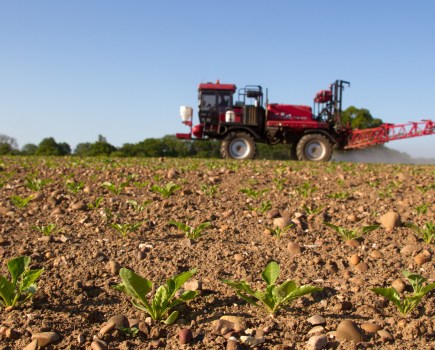Small Robot Company have today announced the launch of a non-chemical precision robotic weeding solution for cereal crops – which is claimed to be a world first. Charlotte Cunningham reports.
Using electricity and artificial intelligence, the Small Robot Company’s ‘Dick’ robot will zap individual weeds using commercially-proven RootWave weed zapping technology.
Early field trials are due to commence in 2020 and according to the firm this is a major technological milestone which will enable automated, precision, per-plant weeding both at scale and autonomously, for the first time providing a post-glyphosate future for arable farmers.
This innovation has been funded by the government’s Innovate UK grant programme, with more than £1 million funding committed to date. Working together in partnership with British start up RootWave, Small Robot Company has successfully completed development of its ‘Dick’ non-chemical weeding robot prototype to in-lab proof of concept stage, Technology Readiness Level (TRL) 4.0. An initial prototype will go into field trials in 2020, with the commercial weed zapping service anticipated to be available from autumn 2021.
“With up to 95% of chemicals wasted in the current farming system, this new non-chemical weeding technology will be significantly more nature-friendly and better for biodiversity,” said the firm.
Next generation
SRC also today launched its next generation Tom robot. Its first robust commercial robot, Tom is delivering SRC’s first commercial service for weed mapping.
“This is truly a world-first. For the first time, we can see each plant in the field – and every single weed. Instead of spraying the whole field, we can simply zap the individual weeds,” says Sam Watson-Jones, co-founder, Small Robot Company. “Farmers are integral to the environmental solution. It’s crucial that we’re working on farm to develop our technology, to ensure it delivers real benefits in field. Together, we’re creating the ultimate sustainable farming model.”
Andrew Diprose, CEO, RootWave added: “Our technology uses electricity to zap weeds with zero chemicals. Increased regulation, herbicide resistance, and consumer concerns are all intensifying the urgency to find an environmental solution. Partnering with Small Robot Company means we can automate our weed zapping to operate at farm-scale.”




